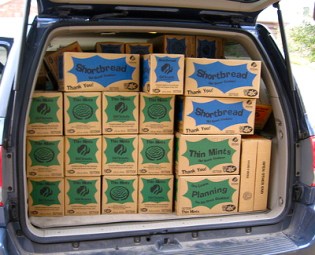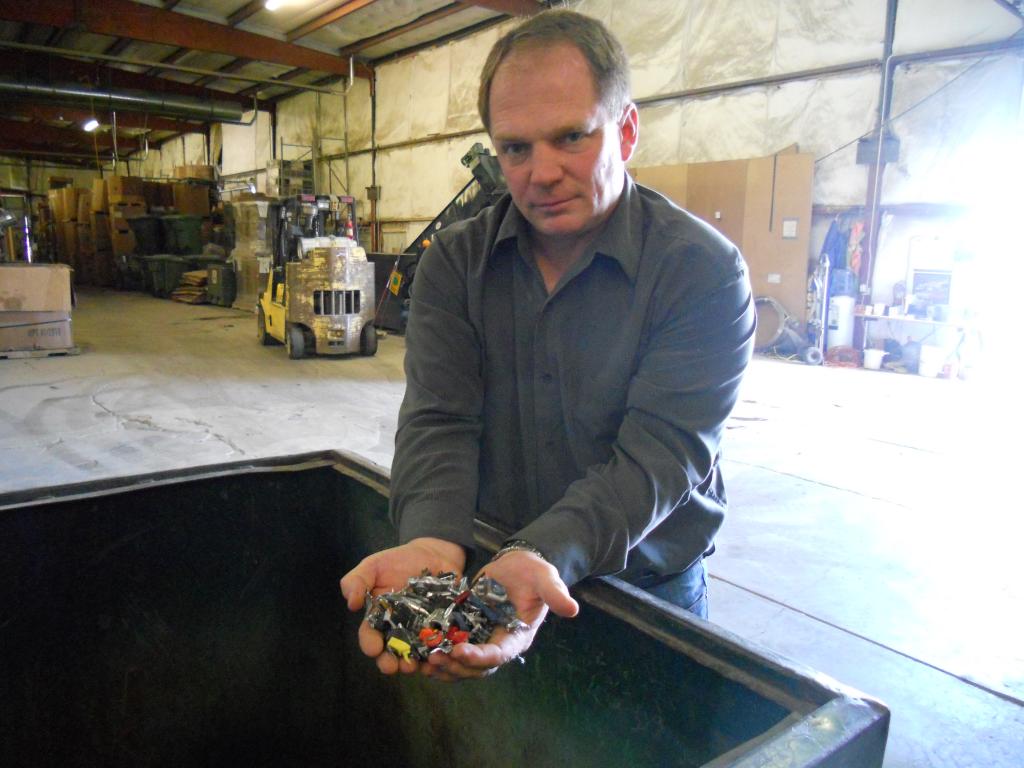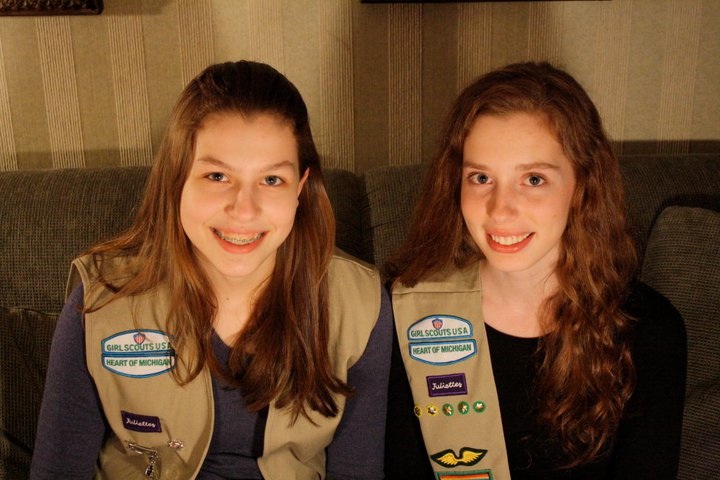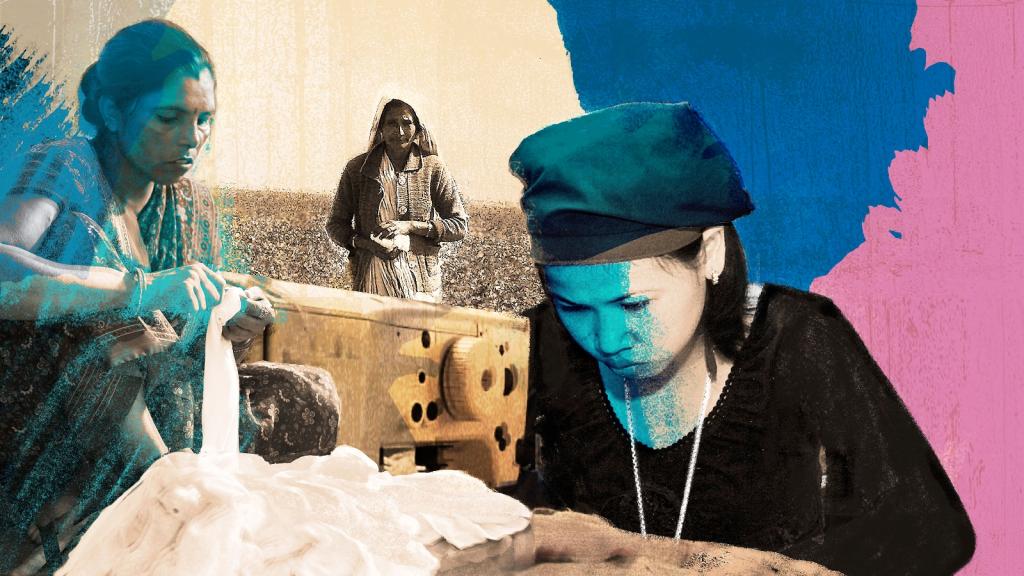
Rhiannon Tomtishen (left) and Madison Vorva.
It’s that time of year again — time to weigh your love for Girl Scout cookies against your love for the rainforests. That’s right: As we’ve reported in the past, your Samoas are deforesting Sumatra and your Tagalongs are killing orangutans.
Girl Scout cookies are made with palm oil, which has seen a huge spike in demand as both a biofuel ingredient for Europeans and a trans fat-free ingredient in processed foods (like high-fructose corn syrup and similarly evil ingredients, palm oil is everywhere once you start looking for it). As a result, thousands of acres of rainforest — mainly in Southeast Asia — have been razed to plant palm fruit trees. In addition to destroying endangered species habitat and old-growth trees, many palm oil plantations have been known to employ children and treat their workers badly.
It’s actually two seasoned Girl Scouts who are putting the most pressure on the organization to stop using palm oil. Ironically, Madison Vorva and Rhiannon Tomtishen, 16-year-old Girl Scouts from Ann Arbor, Mich., first learned about the destructive effects of the palm oil industry five years ago, as part of a project to earn a Girl Scout Bronze Award. Last year, they gathered almost 70,000 signatures on a petition to Girl Scouts USA (GSUSA), asking the organization to stop using rainforest-destroying palm oil.
GSUSA — which will celebrate its 100th anniversary this year and has recently launched a $76 million media campaign to raise $1 billion — spent months ignoring the concerns of scouts, environmental organizations, and cookie fans. They even resorted to Facebook censorship. Then, last May, the leaders of GSUSA finally sat down with Vorva and Tomtishen to hammer out a new policy on palm oil.
The policy — announced in September — says GSUSA will move toward certified-sustainable palm oil by 2015. In the meantime they’ll purchase Green Palm certificates, which offset palm oil use by providing monetary incentives to sustainable palm fruit farmers in Southeast Asia. And they’ll be sure to tell their customers about it right on the outside of their cookie boxes, starting next year.
It’s not every day that a larger national organization responds to a pair of teenagers, but Vorva and Tomtishen are keeping their eye on their ultimate goal: an end to deforestation.
“We were excited [about the policy], but it doesn’t do enough to ensure that Girl Scout cookies are rainforest-safe,” said Tomtishen.

As of 2007, there were 200 million boxes of Girl Scout cookies sold every year. (Photo by Jason French).
The Roundtable on Sustainable Palm Oil (RSPO), of which GSUSA is a member, certifies as sustainable palm oil that isn’t grown on land deforested since 2005. While GSUSA touts its membership in RSPO as proof of its commitment to addressing the issue, Glenn Hurowitz wrote for Grist that:
… membership in the RSPO, an industry-dominated form, is in itself meaningless. The only requirement for companies to join and say they’re members is that they write a $2,000 check every year to the RSPO. Being a member of the RSPO doesn’t mean your products are any better for the environment, protect a single orangutan, or save a single tree.
As Vorva points out, while “sustainable” palm oil production doesn’t allow for established or old-growth rainforest to be displaced, the certification does nothing to protect newer (post-2005) forest that can still act as crucial habitat for wildlife. Similarly, most certified sustainable palm fruit farming doesn’t address the carbon dioxide released by burning these forests, or the human-rights abuses that occur on palm oil plantations.
Amanda Hamaker, GSUSA’s product sales manager, said the organization took the girls’ campaign seriously, and devoted time and money to finding a way to make Girl Scout cookies more sustainable. Hamaker added that she and everyone else from GSUSA who met with Vorva and Tomtishen were under the impression that the girls were satisfied with the new policy.
“We knew when we announced the position that we weren’t going to make everyone happy, but nothing ever does,” she said. “Our policy is based on inventing a new kind of supply chain conversation with our bakers. Structurally that was new territory for us. That’s something that takes time.”
Vorva acknowledged this. “Obviously this is going to be a process,” she said. “It’s not easy to just change the ingredients like that.”
Especially, Hamaker pointed out, when cookie recipes are tweaked constantly by GSUSA’s commercial bakers, ABC and Little Brownie. “There are all sorts of ingredient combinations that happen in a cookie every year that could change,” she said. “We want to have an ongoing conversation with our bakers about palm oil and a number of other topics, but we also feel very strongly that we need to leave them with the flexibility to create the recipes for the best cookies.”
The cookies weren’t made with palm oil at all until 2005, when concern about trans-fats drove the switch away from hydrogenated soybean oil (the original cookies contained butter, which is expensive and less shelf-stable). Canola oil, sourced mostly from the U.S. and Canada, could be a less environmentally destructive alternative — but when you take into account the fact that most canola is genetically engineered, grown using monocropping and vast quantities of pesticides, then refined using the chemical hexane, it might just be a toss-up. Then again, most of the forests where canola grows are already long gone, and canola production doesn’t encourage the slaughter of orangutans. The health factor is another question. But, as Vorva said, “they’re never going to be super healthy; they’re cookies. They’re meant as a treat.”
Of course, Girl Scout cookies must be made cheaply to be an effective fundraiser for the organization — and that poses serious obstacles to creating a sustainable product. In addition to raising awareness about the impacts of the palm oil industry, Tomtishen and Vorva are discovering how complicated it can be to find a balance between taste, cost, and sustainability within our food system.
The girls now have a new petition circulating that they hope will convince GSUSA to take their efforts around palm oil further. They also created a “rainforest heroes” badge that Girl Scouts can earn by getting involved in the campaign.
It makes sense that an organization that publicly prides itself on empowering girls would occasionally be challenged by some of those same girls. “Being asked to work directly with girls … was a charge we take very seriously,” Hamaker said. But Vorva and Tomtishen, scouts for 10 years now, have found the whole experience simultaneously affirming and disconcerting.
“This issue has been so important to me because we started this project for Girl Scouts,” Tomtishen said. “I guess I’ve sort of been shocked by the response they’ve taken on this issue. Girl scouting was such an important part of my childhood, and if they aren’t living up to their values what does that mean to the girls they’re teaching these values to?”
Vorva and Tomtishen stressed that their campaign is not meant to be a boycott against the cookies, whose sales fund vital aspects of the organization. “One of our main goals has been to keep this campaign positive,” Vorva said. “Girl Scouts should not have to choose between going to camp and showing they care about this issue.”
So go ahead, buy those Tagalongs. Just watch out; if these young women start thinking critically about the ingredients in all their meals, other big players in the food system (Big Soy, and the livestock industry you support, we’re talking to you!) might just have to watch their backs.
Update: On Feb. 9, Tomtishen and Vorva won a U.N. Forest Heroes Award for North America in recognition of their work to make Girl Scout cookies rainforest-safe. They were nominated for the award — given for the first time this year — by the Union of Concerned Scientists, which has been an enthusiastic supporter of their work.



